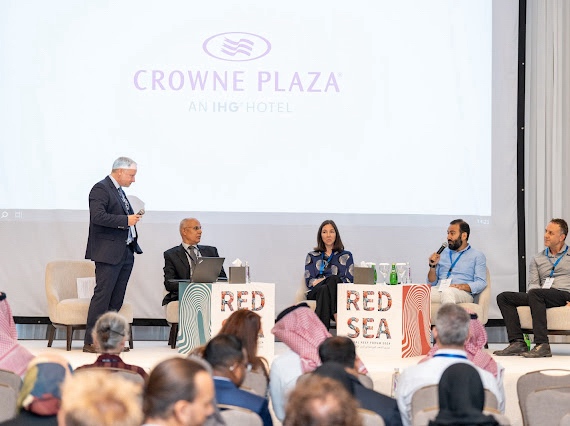
KAUST scientists took center stage at the International Coral Reef Initiative (ICRI) meeting hosted by SHAMS in Jeddah, Saudi Arabia. This marked the first time the ICRI meeting has been held in the Middle East, highlighting the region’s growing importance in coral reef conservation. The SHAMS initiative, in collaboration with ICRI, underscores the urgent need to protect marine ecosystems, particularly coral reefs, which are increasingly threatened by climate change.
KAUST, with its cutting-edge research and multidisciplinary expertise, is at the forefront of developing innovative solutions to preserve coral ecosystems in the Red Sea. Professor Ibrahim Hotiet and Dr. Eslam Osman shared their groundbreaking research on coral reefs in the Red Sea, captivating an international audience of policymakers, researchers, and conservationists. Their contributions showcased KAUST’s commitment to a sustainable future for Saudi Arabia and its leading role in coral reef conservation.
Dr. Osman’s research focuses on prediction of “super corals” that exhibit exceptional resilience to climate change. His innovative approaches aim to uncover the secrets of these remarkable organisms and their ability to thrive in the future. Professor Hotiet is working to understand coral connectivity, identifying areas that produce and receive more coral larvae. This research is crucial for effective spatial planning to conserve coral reefs for future generations.
Saudi Arabia’s Vision 2030 aligns with these conservation efforts, promoting a sustainable balance between economic growth and environmental stewardship. Initiatives like SHAMS and NEOM, KAUST Coral Restoration Initiative (KCRI) and others emphasize the Kingdom’s commitment to marine conservation, with KAUST playing a pivotal role in shaping a sustainable future for the Red Sea and its communities.

